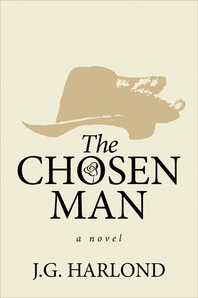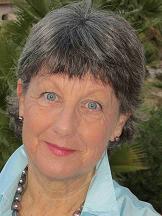Good morning Jane. Welcome to Authors’ Corner. You’ve had two novels published now, THE CHOSEN MAN and THE EMPRESS EMERALD both of them historical fiction with a difference. What is it you like about writing in that genre?
As a child I loved books like ‘Children of the New Forest’ – books that took me out of my normal life into the past and showed me how people used to live in ‘the olden days’. Later, I started reading Jean Plaidy (reading the titillating bits about royal sinfulness may have had something to do with it). Then I moved on to Daphne Du Maurier and then discovered Dorothy Dunnett’s tremendous ‘Lymond’ series starting with ‘The Game of Kings’ – her Niccolo series – which I still read and reread. Dunnett was an amazing writer; I always find something I missed or overlooked as an important clue in an earlier reading. I suppose all these writers have influenced my own writing in one way or another. But what is it I like about writing historical fiction? I think it must have something to do with universal themes; how history repeats itself and we humans constantly get caught up in situations that are just beyond our control. My novels include aspects of how international politics and established religion (perhaps that should have a capital R) impinge upon the lives of humble people – but how those humble people, even those at the bottom of the social scale in political if not financial terms, actually have fascinating lives. On my ‘to do’ list is a big ‘Victorian’ novel about two Harlond wives who lived through the C19th. On the outside they may appear ordinary wives and mothers, getting on with raising a family, but they had the most interesting lives. I’d like to recreate what happened to them and examine how they not only coped in some very difficult situations but triumphed. This is not ‘misery memoir’ stuff it’s cultural history. Not kings and queens, but real people in real places, whose lives could show us a lot.
I also have to admit that I actually enjoy doing research. Sometimes, I get terribly sidetracked and then have to be ruthless about culling juicy details and interesting tidbits from my narrative. Novels that are crammed with historical information – even when it is ‘true’ history – don’t make good fiction. Readers soon spot what has become known as ‘an information dump’, and are rightly put off. I found all sorts of astonishing details about Vatican espionage when I was researching the background to ‘The Chosen Man’, but then had to cut a lot out of the manuscript because it diverted from the main plot – and some of it frankly beggared belief.

There is a wonderful Indian artist called Usha Shantharam living in Bangalore. I found one of her paintings called ‘Still Waters’ and thought it was ideal for ‘The Empress Emerald’ – it conveyed the Indian setting beautifully, and finding pictures that suggested the somewhat convoluted plot and sub-plots of ‘Empress Emerald’ was really tricky. Unfortunately, reproducing the painting was not viable so my publisher asked her printer to have a go at creating something similar. They then put in the leopard, which is the catalyst for the hero Leo Kazan’s strange history. When I first saw the finished cover I was thrilled because: it does look as if the leopard is walking out of the frame, and on the ebook it seems to go 3D.

I have been writing educational material for years. At one time I was commissioned to do workbook or teachers’ materials; I’ve also been asked to collaborate on ‘readers’ and create photocopiable worksheets etc. Gradually I took on bigger projects and last year I completed an IGCSE English as a First Language Student Book, Workbook and Teacher’s Guide for OUP (writing as Jane Arredondo). I have to say I’m really pleased with the Student Book in particular. It’s colourful and engaging – not a boring old school book at all. But that was largely to do with my commissioning editor, who shared my vision of how a book for 14 – 16 year-old should be. Having been a teacher for many years, have you ever thought about writing for young people?
Funny you should ask that, I’m working on a proposal for a younger readers’ book right now. I’ve also recently finished a manuscript for a story based on the Volsung Saga that includes the wicked Loki and the slaying of a fearsome dragon. No publisher for that yet, but the search is on. Being a timeless story, though, I don’t feel too pressured to get it into print, although I’m told there’s a new movie coming out about Loki, so …
What pitfalls do you see when writing fiction for teenagers?
Teenagers nowadays are tremendously techno-savvy; they have smart phones and educational apps in the classroom, and the means by which they are entertained and obtain information has changed in the past five years alone. One thing that worries me about the ‘Google search’ form of acquiring information is that it can be used and immediately forgotten. As for reading – I’m not sure many young people read for pleasure anymore. Those that do seem to go for titles and texts that include a lot of gore and dubious values. One of the most important aspects of reading fiction, as I see it, for young people and not so young people, is that one enters a vicarious world where one can read about other people’s struggles, joys and misfortunes, and perhaps learn from their misplaced alliances or wrong decisions. In the old days this was called ‘catharsis’ – fearing and hoping for a flawed hero/heroine. It bothers me a great deal that young people are not reading some of the old classics because I think older people have learned a lot the easy way through this sort of fiction. But then I am getting on in years: perhaps all ‘older generations’ have said the same thing.
I believe that you now also spend some of your time helping other authors. Can you tell us a little about how that works?
Some years ago I was involved with a splendid author called Joan Fallon and we ran a writers’ working holiday called The Memory Keepers’ Workshop – for people wanting to write biography or about their own lives, or writing historical fiction. I then joined Famelton Writing Services. Famelton offers very useful and practical advice for new and previously published authors. They can supply a critique of an early-draft ms; do copy-editing and final draft proofreading. I really enjoy working on a manuscript as a copy-editor, looking at the pace of the narrative, how dialogue is formatted etc. It’s exciting working with an author at this stage.
By the time you’ve done all that, I’m surprised you have time for anything else but like all authors these days I suppose you have to market your own books. What marketing techniques have been most useful to you?
Ah, pass. This is where I stumble. I spent part of a lifetime in education then moved into the sanctuary of my home office to write full-time. When it comes to marketing . . . well, I listen to what friends tell me and try to copy them, but I’m pretty dreadful at it. Maybe it’s because of all those years teaching Literature – I mean, basically, who do I think I am telling anyone I’m an author?
Despite your modesty Jane, I am pleased to hear that your latest novel The Empress Emerald is doing well. Good luck with your Dragon slayer book.


Recent Comments